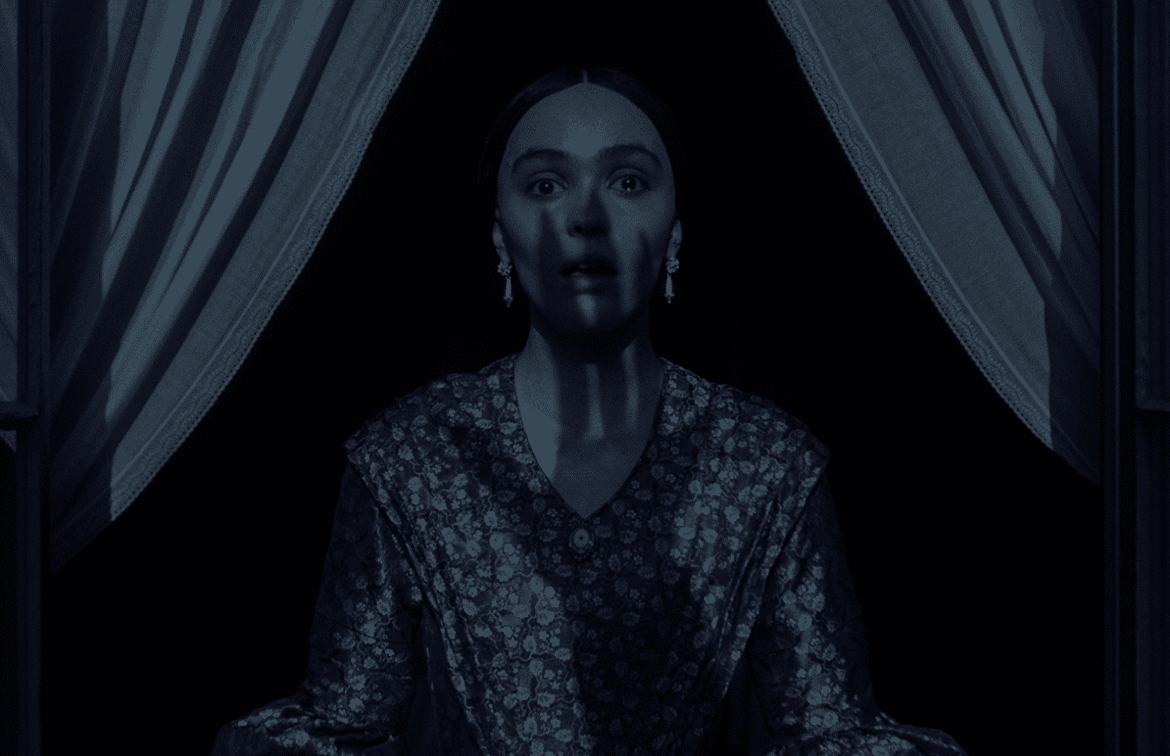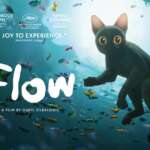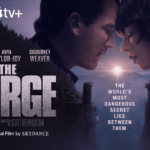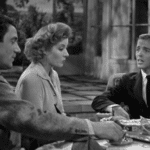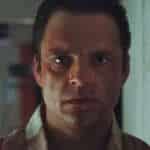I had never ventured into Eggers’ previous works, not even The Witch, his most beloved, overtly horror-driven film. As such, I wasn’t sure what to expect, but I knew to expect Eggers to really emphasize the realism and authenticity of the time period. While some critics have dismissed his commitment to historical accuracy in his previous works, it serves Nosferatu beautifully. From the outset, the world feels fully realized, immersing us in the characters’ struggles.
The film begins with Ellen, a lonely, lost adolescent, seeking comfort from the darkness, who, when a voice reaches out to her, finds she gets more than she bargained for. Years later Ellen is a new bride with Thomas, a devoted husband, who takes a perilous job in hopes of securing a better life for his wife despite her unease. Ellen’s dread is palpable, rooted in recurring nightmares of her youthful nightmare which seems to begin anew. For the poor couple, they will soon both encounter this harrowing spectre, as Thomas’s path leads him to directly to Orlok, Ellen’s tormentor. In one of the first of many marvelous sequences in this film, we see Thomas’s journey into Orlok’s domain as a bleak, nearly colorless landscape, which is so soundless as to amplify his dread, and so barren and oppressive that the landscape mirrors his growing isolation. When Orlok finally appears, he teeters on the edge of absurdity with his guttural speech and exaggerated features, but this initial humor swiftly gives way to a looming terror. Orlok’s quiet yet unrelenting grip on the land—and on Thomas and Ellen’s lives—creates a mounting tension that lingers throughout the film.
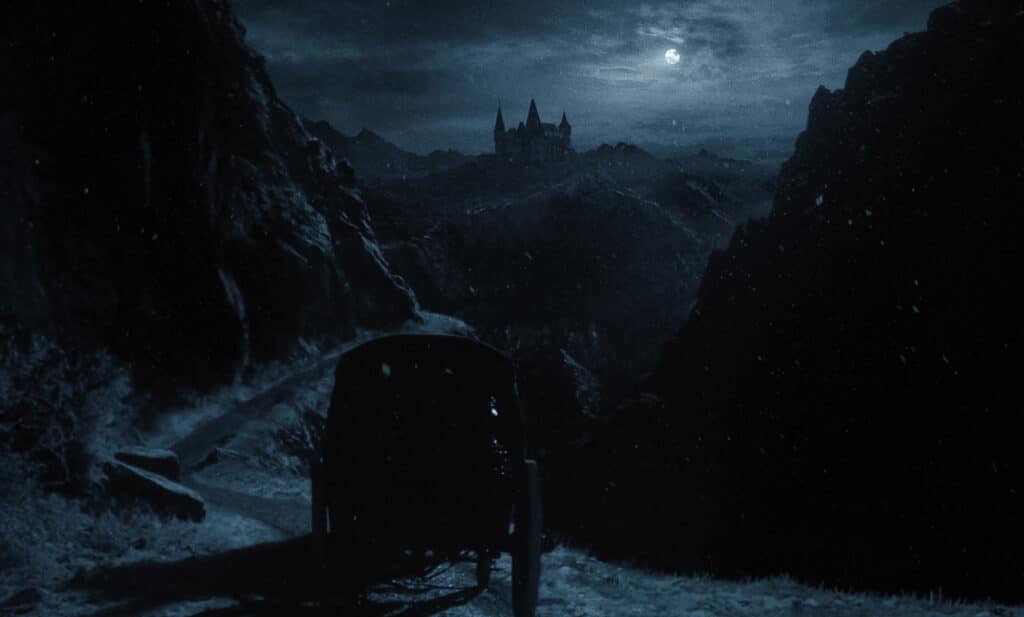
Nosferatu – A carriage approaches Orlok’s castle in director Robert Eggers’ NOSFERATU, a Focus Features release.
Credit: Courtesy of Focus Features / © 2024 FOCUS FEATURES LLC
Visually, the film is breathtaking. Eggers and cinematographer Jarin Blaschke craft a gothic, modern masterpiece, depicting many of the scenes with rich blacks and icy blues. The oppressive shadows and wintry desolation imbue every frame with a haunting beauty, making even the most harrowing scenes resemble works of art. This meticulous visual design adds immense rewatch value, as I imagine there’s always something new to admire.
What truly animates Nosferatu, however, is its stellar cast. Lily-Rose Depp serves as the emotional core, balancing vulnerability and resilience with a commanding physicality. While some critics seem to balk at elements of her performance, I found her equally compelling in dialogue-driven and action-heavy scenes. A climactic exchange between Thomas and Ellen showcases her emotional range and firmly establishes her as an actor to watch.
Bill Skarsgård’s Count Orlok is equally transformative. His physicality and eerie delivery make the Count both grotesque and mesmerizing, leaving an indelible impression. Willem Dafoe’s Professor Von Franz, meanwhile, provides a perfect counterpoint as the sole voice of reason (who ironically is oft ignored as a mandman). Though his character bears the weight of Dafoe’s iconic status, something I never forgot during the film, his portrayal feels natural and essential, grounding the film’s supernatural elements.
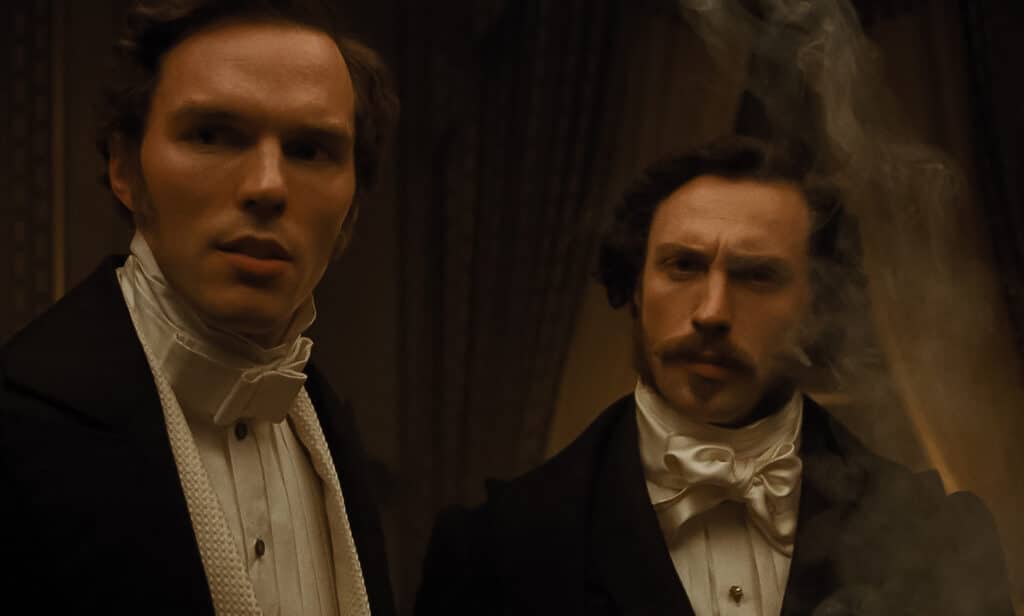
Nosferatu – Nicholas Hoult and Aaron Taylor-Johnson (Credit: Courtesy of Focus Features / © 2024 FOCUS FEATURES LLC)
The supporting cast—Emma Corrin, Aaron Taylor-Johnson, and the ever-reliable Nicholas Hoult—further enriches the narrative. Hoult, in particular, brings depth to Thomas’s arc, making his descent into Orlok’s grasp heartbreakingly real. Together, this ensemble elevates the film far beyond a mere retelling of a classic.
Ultimately Nosferatu is more than a gothic horror tale; it’s a meditation on isolation, dread, and humanity’s resilience in the face of darkness. In 2025 now, this film resonates with new meaning as we enter an increasingly fragile world, where science is disregarded, bad actors loom larger and scarier than ever, and doubt seeps into our world like the plague with mal-effects. Though Eggers’ has spoken of always wanting to retell this tale, it’s in particularly prescient now. Perhaps it’s all the more important Eggers’ waited too to become an even more seasoned director, for he truly brought his all to this film. Thanks to Eggers’ visionary direction, coupled with extraordinary performances and arresting visuals, Nosferatu will sit with you long after the credits wrap. Even for a horror avoidant fan like myself, it’s an unforgettable cinematic experience, and one of the best films of 2024 to be sure.
